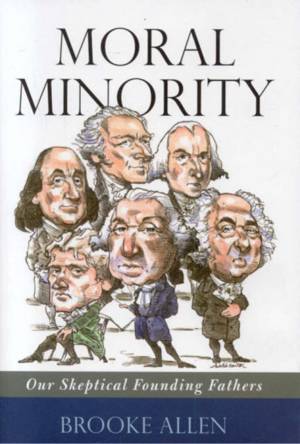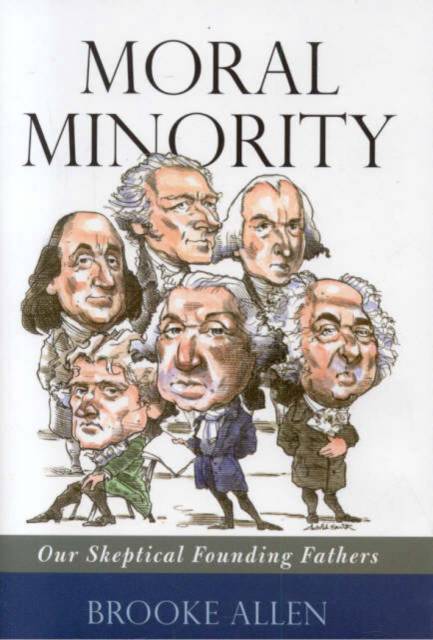
- Retrait gratuit dans votre magasin Club
- 7.000.000 titres dans notre catalogue
- Payer en toute sécurité
- Toujours un magasin près de chez vous
- Retrait gratuit dans votre magasin Club
- 7.000.0000 titres dans notre catalogue
- Payer en toute sécurité
- Toujours un magasin près de chez vous
Description
In her lively refutation of modern claims about America's religious origins, Brooke Allen looks back at the late eighteenth century and shows decisively that the United States was founded not on Christian principles at all but on Enlightenment ideas. Moral Minority presents a powerful case that the unique legal framework the Founding Fathers created was designed according to the humanist ideals of Enlightenment thinkers: God entered the picture only as a very minor player, and Jesus Christ was conspicuous by his absence. The guiding spirit of the Declaration of Independence and the U.S. Constitution, Ms. Allen explains, was not Jesus Christ but John Locke. In direct and accessible prose, she provides fascinating chapters on the religious lives of the six men she considers the key Founding Fathers: Franklin, Washington, John Adams, Jefferson, Madison, and Hamilton. Far from being the conventional pious Christians we too often imagine, these men were skeptical intellectuals, in some cases not even Christians at all. Moral Minority presents unforgettable images of our iconic founders: Jefferson taking a razor to the Bible and cutting out every miraculous and supernatural occurrence; Washington rewriting speeches others had crafted for him, so as to omit all references to Jesus Christ; Franklin and Adams confiding their doubts about Christ's divinity; Madison expressing deep disapproval over the appointment of chaplains to Congress and the armed forces, and of what we would now call "faith-based" initiatives. Enlivened by generous portions of the founders' own incomparable prose, Moral Minority makes an impassioned and scintillating contribution to the ongoing debate--more heated now than ever before--over the separation of church and state and the role (or lack thereof) of religion in government.
Spécifications
Parties prenantes
- Auteur(s) :
- Editeur:
Contenu
- Nombre de pages :
- 256
- Langue:
- Anglais
Caractéristiques
- EAN:
- 9781566636759
- Date de parution :
- 01-10-06
- Format:
- Livre relié
- Format numérique:
- Genaaid
- Dimensions :
- 152 mm x 226 mm
- Poids :
- 471 g

Les avis
Nous publions uniquement les avis qui respectent les conditions requises. Consultez nos conditions pour les avis.






